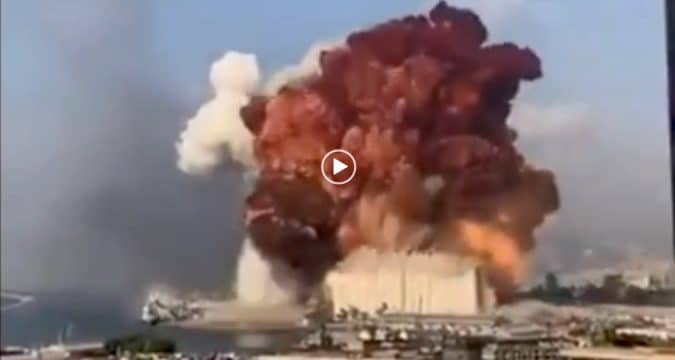
HONG KONG (SE): Two huge explosions rocked the Lebanese capital of Beirut on the evening on August 4 igniting fires and destroying buildings in the port area, causing damage across the city. At least 100 people have been reportedly killed and over 4000 injured, flooding hospitals with casualties.
The Guardian quoted the Lebanon’s prime minister, Hassan Diab, said the cause of the explosion was 2,700 tonnes of ammonium nitrate, a common industrial chemical used in fertiliser and as a component in mining explosives. Diab declared a national day of mourning for the victims of the explosion.
Catholic News Agency reported that the Christian leaders in Lebanon and around the world have called for prayer for the nation. Over Sixty percent of Lebanon’s people are Muslim, evenly split among Sunni and Shia, and nearly 35% of the country’s population is Christian, most of whom are Maronite Catholic Christians.
In the wake of the explosion, Christians seek the intercession of St. Charbel, Lebanon’s patron saint, who is also revered by many of Lebanon’s Muslims. St. Charbel Makhlouf lived from 1828 to 1898, spending much of his life as a monk and hermit. He is known in Lebanon for the miraculous healings of those who visit his tomb to seek his intercession – both Christians and Muslims.
Deeply devoted to God’s Eucharistic presence, Charbel suffered a stroke while celebrating the Divine Liturgy of the Maronite Catholic Church on December 16, 1898. He died on the Christmas Eve. He was canonized in 1977 by St. Pope Paul VI.
“We ask your nation to carry Lebanon in its hearts at this difficult stage and we place great trust in you and in your prayers, and that the Lord will protect Lebanon from evil through your prayers,” Fr. Miled el-Skayyem of the Chapel of St. John Paul II in Keserwan, Lebanon, said in a statement to EWTN News on August 4.
“We are currently going through a difficult phase in Lebanon, as you can see on TV and on the news,” the priest added.










